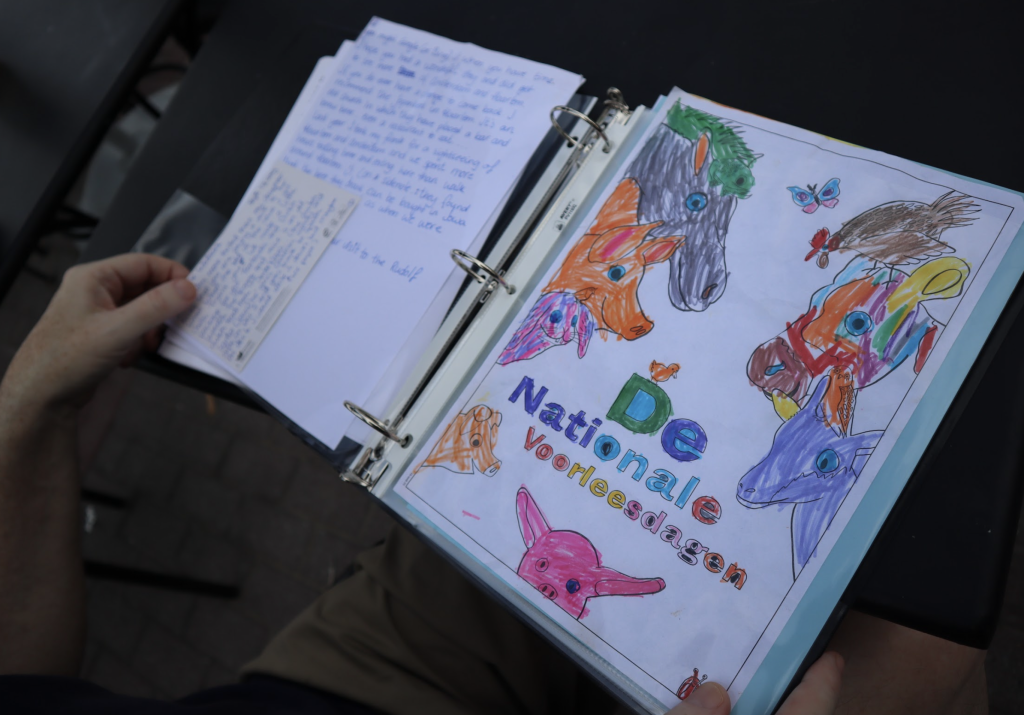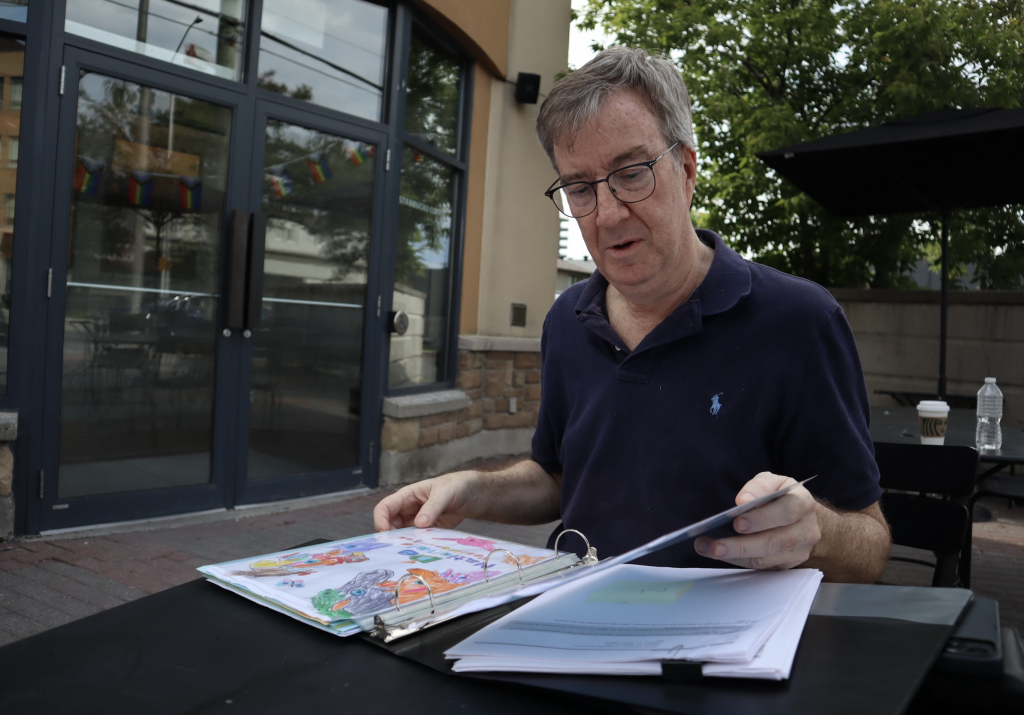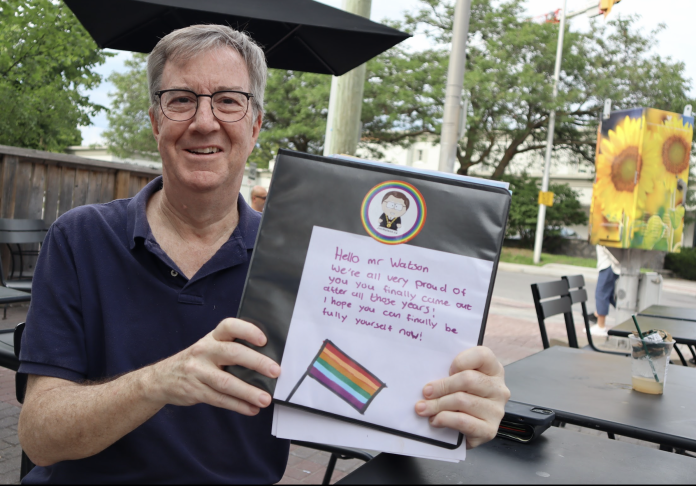By Charlie Senack
When Jim Watson decided to come out as gay, it didn’t shock the city with surprise.
But the former mayor decided to go public with his sexuality after reflecting during a trip to Prince Edward Island.
Watson, a Kitchissippi-area resident who will be 62 next week, broke the news in 2019 through an opinion piece published in the Ottawa Citizen.
“I’m gay,” he wrote. “There – I said it; or rather, wrote it. Those two words took me almost four decades to utter, but as they say, ‘Better late than never.’’’
The unexpected decision to share details of his personal life came after Watson forgot to book a car during his trip to Charlottetown that summer. It’s not an easy place to get around by foot,” he said, leading to lots of down time.
“I didn’t have a computer with me so I wrote in longhand on hotel notepads. I did two of three drafts, got it typed up, and sent it in,” Watson told Kitchissippi Times. “It wasn’t as if it was a big burden that I worried about. Most people thought I was gay anyways. But I thought if my example is that you can be mayor and be gay, it might be an inspiration for somebody else to come out. I just regret taking 30 plus years to do it.”
Reaction to the news was mostly positive, Watson said, with 95 per cent of the messages he received being supportive. He has a binder with many of the emails residents sent him. They are labeled “the good and the bad.”
Positive emails thanked Watson for his bravery, calling him “an inspiration” and wishing him well in living an “authentic life.” The negative emails said Watson would burn in “eternal fire and forever be eternally tormented by the beast.”
“‘Who cares if you’re gay or straight,” wrote some guy from Hamilton. I’m not sure why he cares,” Watson read with a laugh from his collection of ‘fan mail’.
Watson said most of the negative emails came from the United States where there is still a large anti-gay movement. There were also a few bible verses sent in.
In March 2021, homophobic graffiti was spray painted outside of Watson’s Carlingwood-area home. Prime Minister Justin Trudeau said at the time he was “appalled” by the action, stating there was “no place for this ignorant and inexcusable hate” in Canada.
The decision to come out was worth it, Watson said but noted it hasn’t changed how he lives his life. You won’t see Ottawa’s longest serving mayor on Tinder or Plenty of Fish.
Many parents wrote to Watson, saying that opening up about his sexuality inspired their children to embrace who they are. “That was heartwarming,” he said.
A school in Haarlem, Netherlands, saw Watson’s coming-out story on CNN and had their students create a binder filled with letters and colourful drawings of support.

Coincidentally, Watson was already scheduled to visit Amsterdam — only 30 kilometers away from the school — for a delegation meeting. Instead of having the binder mailed, he was able to visit in person and meet with the students.
“We took a side trip and some of the students read their letters to me. There were a couple of kids who came out — this was a grade 7 or 8 class,” Watson said. “It was one of the most beautiful experiences I had in my career.”
Watson was Ottawa’s first mayor to participate in the Capital Pride parade and was an avid supporter of having the pride flag hoisted at city hall every August. He said the negativity and homophobia still shown in the world is why pride still needs to be embraced.
“It’s sad to see the anti-gay and anti-trans homophobic hate. People often ask me why we still need pride. I say just look at the news,” Watson said. “There recently was the stoning of a gay man in Africa and people protesting against drag queens and drag readings.”
Life after politics
Since leaving City Hall for the final time in November, Watson has been focusing on reconnecting with old friends and colleagues.
Watson has been able to take a train trip to Western Canada and has visited Quebec City, Toronto, and Montreal. He wanted to travel more but those plans have been sidelined by illness.
“I was diagnosed in December with colitis, so I’m having to deal with that and try to manage it with medication,” he said. “That slowed me down the first couple of months. I’m trying different medicines. The doctors have been very helpful, so hopefully I’ll get the right regime to control it. You can never get rid of it.”
The return to civilian life has been surprisingly easy for Watson, a career politician who was first elected as capital ward councillor in 1991. He served four terms as mayor — one term before amalgamation — two terms as city councillor and two terms as Ottawa West Nepean’s MPP, where he also held various Ontario cabinet positions.
Not planning a return to politics, Watson has recently accepted a position on Ottawa Community Housing’s board of directors and he volunteers at Shepherds of Good Hope every Tuesday. He has also joined two other corporate boards of directors — one in Ottawa and the other in Toronto — which will be announced in the next couple of months.
“I’ve got a good mix of corporate responsibilities and volunteer responsibilities,” he said. “I’ve also enjoyed reconnecting with former colleagues, friends, and family that I unfortunately lost touch with before I was mayor 24 hours a day. The past few years, between Covid and the convoy, were draining physically. You come home and you don’t want to go out and have dinner with friends. You just sit down, watch the news, and go to bed.”
Now having to get around the city without a driver, Watson has bought a new used car and takes the LRT downtown at least three times a week — when it works.
“It’s a frustrating experience for everyone. When it’s working, it’s a really great system. But when you have these big issues it’s completely frustrating,” he said. “I have confidence in Mark [Sutcliffe] and his team to get those last five or 10 items finally resolved once and for all.”

